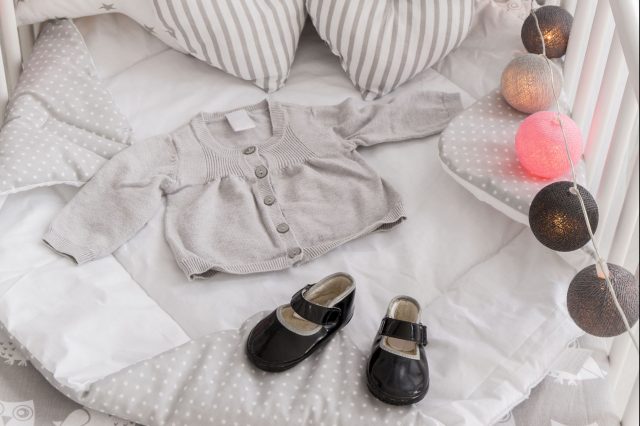10 ways to avoid overspending on your baby: What every new parent should know

You can't help it - those toys, books and clothes are just so cute and cool that you want to buy everything.
Quite rightly, you want your precious child to have only the best.
But everyone has financial limits. You simply can't buy everything you see, despite the temptation.
So, stop yourself from overspending with these 10 practical tips.
1. BUY MINIMALLY AT FIRST

Most first-time parents are eager to fill up the nursery room from top to bottom.
Remember that your friends and family will buy your new baby lots of presents, including clothes, toys and equipment.
So buy only enough to get started, then wait to see what others will get for her.
2. ASK FOR SPECIFIC PRESENTS
If there is a particular baby toy that you want, don't just cross your fingers and hope someone will buy this for you.
Instead, speak to a friend or relative whom you know will give your newborn a gift, and ask him to get the item.
That also saves him from having to guess what you'll like to receive.
3. TAKE STOCK OF WHAT YOU HAVE
In the excitement of new parenthood, it's very easy to forget that you already have that book or toy stashed somewhere in her nursery room.
That's why you should keep a note of what she has, or maybe reorganise her cupboard every few weeks, so you know what's there.
4. UNDERSTAND YOUR BUDGET
Very few parents have unlimited funds.
So get to know how much you can spend each month on your little one. That will help prioritise your spending.
This economic understanding keeps you in control of your finances, and reduces the risk of spending beyond your means.
5. STICK TO YOUR FINANCIAL LIMITS
Whatever spending restriction you decide to set, stick to it.
Of course, there will always be the temptation to buy that extra special T-shirt because it looks so lovely on display in the baby boutique.
Learn to tell yourself "no", as that will avoid feelings of guilt and regret later.
6. SAVE FOR LARGER ITEMS
[[nid:460938]]
You don't have to buy everything immediately.
Be prepared to save up for the big-ticket items that make a dent into your purse.
If you are sure you must have it, put some money aside each week.
Keep this saving fund separate from the rest of your weekly baby spend; it quickly adds up.
7. ADMIT THAT SHE DOESN'T NEED EVERYTHING
The fact is that your lovely baby won't suffer emotionally or physically if she doesn't get the new toy you saw this morning - the one she has is fine!
Of course, you'd love to buy it for her, but it means more to you than to your baby. She is happy with what she already has.
8. BE REALISTIC

If your baby could talk, she would tell you that she'd much rather have you read a story or sing a song to her, than to have the latest must-have gadget.
Your love, attention and stimulation matter much more than the number of toys she has in the cupboard or the variety of clothes hanging in her wardrobe.
9. CONSIDER SECOND-HAND PURCHASES
Where possible, buy used items, particularly equipment like cot frames, strollers and large toys.
If you buy these from a good family home, and are able to clean them to your own standard, you'll avoid the risk of overspending and still get what you want.
Or why not rent some of these items that your baby will outgrow fast?
10. ENJOY WHAT YOU HAVE
Instead of worrying about what you can't buy, concentrate on the positives.
Be proud that you have managed to give her what she has right now - that's a terrific achievement.
And enjoy the moments as you dress her in those clothes and use those toys to play with her.
This article was first published in Young Parents.